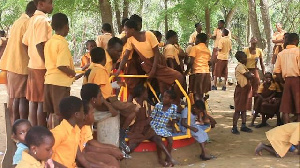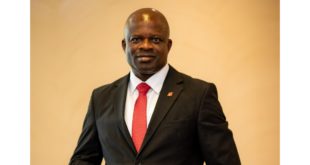Uganda’s education sector will fully recover from COVID-19 impact and aftereffects after 2030, according to Makerere University-based thinktank, Economic Policy Research Center (EPRC).
In the research in which experts analyzed levels of key education advancement indicators such as enrollment, transitioning, and quality of education in the years preceding 2020 when the pandemic hit, they also looked at current performance and modeled how the sector is likely to perform if key changes are made.
Findings show that in the education shock scenario, by 2030, about 1.8 million more people aged 15 and above will not have completed primary education, and by 2050 nearly 3 million more adults will have not completed if investment into the sector is not undertaken.
Stella Kwasi, a research associate at the University of Denver that partnered with EPRC on the study told URN in an interview that by 2050, their model also shows if COVID-19 had not hit, the average years of school for Ugandans would have been 8.7 years but with the challenges posed by the pandemic, this is now rated at 8.5 years. In areas like Karamoja, the average years of education for adults will still be low at 4 years.
“Education is a very slow-moving thing, the sooner the investment the better. It takes 15 to 20 years for a student to complete school. It is even hard to get a good average, and so had Covid not hit, we estimate that Uganda would have had an average year of education of about 8.7 years by 2050. However, that will be about 8.5 by 2050. It looks like a small difference but because education is slow-moving, it is quite significant,” said Kwasi.
Kwasi says while school enrollment will eventually pick up, to return to the pre-pandemic levels, it will take Uganda more than eight years. For primary school enrollment which was worst hit by the pandemic, for instance, 13 of the 15 regions as sub-divided in the study had gross primary school enrollment rates of 100 percent in 2019. Karamoja which is the lowest had its primary school enrollment rate at 84 per cent.
“The key takeaway is that there are bottlenecks at primary level and transition to secondary level and the impact of Covid has only exacerbated these effects. And so going forward, the key to improving the education sector and ensuring that outcomes of improving the country, is to ensure that as many students are enrolled in school and that government takes measures to ensure that they stay in the last grade of school and transition to secondary,” added Kwasi.
Paul Lakuma, a research fellow in EPRC’s macroeconomics department said with such predictions, there is an urgent need for policy actions that encourage and incentivize all learners that dropped out to go back to school if bottlenecks in the education system are to be curbed.
He points out issues like teacher remuneration and digitalization where possible as key especially since some teachers found better-paying survival options during the long school closures.
However, if no innovations are adopted, experts say only 17 per cent of Ugandan adults will have achieved secondary education by 2050. The study was conducted in 135 districts categorized into 15 regions including Acholi, Ankole, Bugisu, Bukedi, Bunyoro, Busoga, Kampala, Karamoja, Kigezi, and Tooro among others.
Source: observer.ug
 Home Of Ghana News Ghana News, Entertainment And More
Home Of Ghana News Ghana News, Entertainment And More





